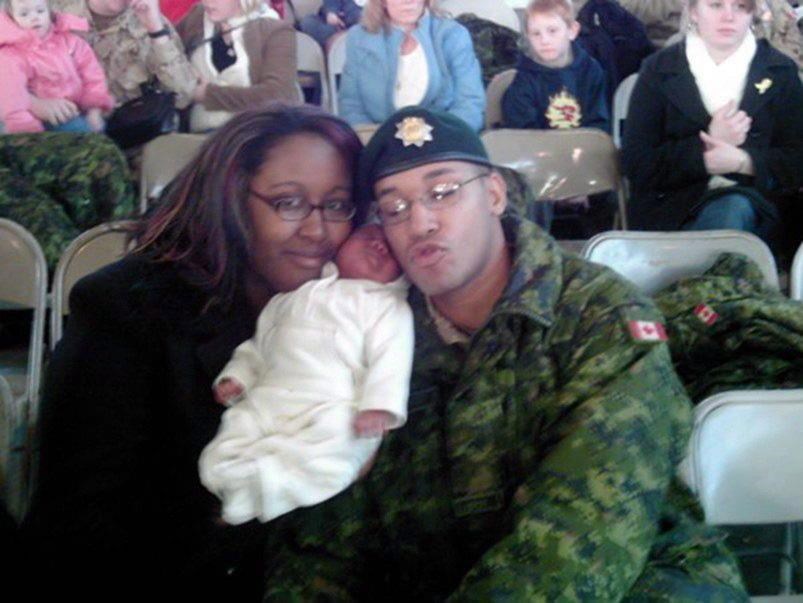Less than a month before Lionel Desmond killed his wife, mother, daughter and himself in 2017, the Afghanistan war veteran called a community group near his home in Nova Scotia to set up an appointment for couples counselling.

Desmond’s decision to seek help on Dec. 9, 2016, was discussed Wednesday as part of an ongoing provincial fatality inquiry in Port Hawkesbury, N.S., which started hearings in January 2020.
One of the key mandates of the inquiry is to determine if Desmond and his family had access to mental health services and domestic violence prevention services.
Nancy MacDonald, executive director of the non-profit Family Service of Eastern Nova Scotia, told the inquiry that Desmond and his wife, Shanna, were scheduled for an initial counselling session by phone on Jan. 16, 2017. Desmond, however, called back on Jan. 3, 2017, to say he instead wanted individual counselling.
MacDonald, a registered therapist with 20 years’ experience, said the administrative assistant who spoke to Desmond that day did not detect any distress in his voice or any warning signs to suggest he or his family was at risk.
“During that call, Mr. Desmond was not, in any way, shape or form, escalated,” MacDonald testified, recalling what the assistant told her after the seven-minute call. “It was a calm tone of voice …. It was just matter-of-fact.”
MacDonald, whose group provides families, couples and individuals with a wide range of mental health services, said staff members are trained to detect subtle verbal cues that hint at deeper problems.

Get breaking National news
“If he had been under real duress … it’s very common for our admins to pull in whatever social worker happens to be in the office at that time,” she said. “It would have been me, because I was sitting right there.”
About six hours later, Desmond was dressed in camouflaged clothing when he used a legally purchased semi-automatic rifle to fatally shoot his family and himself in their rural home in Upper Big Tracadie, N.S.
MacDonald was asked if Desmond’s decision to seek individual counselling could be interpreted as a red flag. She said that wasn’t the case, because it’s not unusual for those seeking couples counselling to realize their relationship is beyond repair.
“Couples counselling often isn’t about keeping couples together,” she said. “It’s also about helping them transition into their new states as co-parents or separated individuals.”
The inquiry has heard Desmond, who was diagnosed with post-traumatic stress disorder in 2011 after serving in Afghanistan in 2007, had spent years trying to rescue his troubled marriage. Before he left the military in 2015, he participated in four years of therapy, during which he repeatedly said he wanted to be a better father and husband.
Soon after the killings, family and friends came forward to say the Desmonds were planning to take part in couples therapy. But the inquiry also heard that on the day of the shootings, Lionel Desmond called a community therapist to let her know that his wife had asked for a divorce.
Reflecting on the tragedy, MacDonald said she and her staff were shocked by what had happened, and they spent a long time discussing if there was anything they could have done differently.
She said her organization has pioneered initiatives that are specifically aimed at helping men, including the founding of a men’s health centre in 2008 and a round-the-clock men’s help line one year ago. The help line offers 30-minute counselling sessions with the option of ongoing help from a therapist or counsellor. It has received 1,600 calls since it opened in September 2020.
“We had no idea how busy it was going to be,” MacDonald said. “We’ve had resounding success.”
As of Wednesday, the inquiry had heard 46 days of testimony, spread over the past 18 months.
This report by The Canadian Press was first published Sept. 15, 2021.













Comments